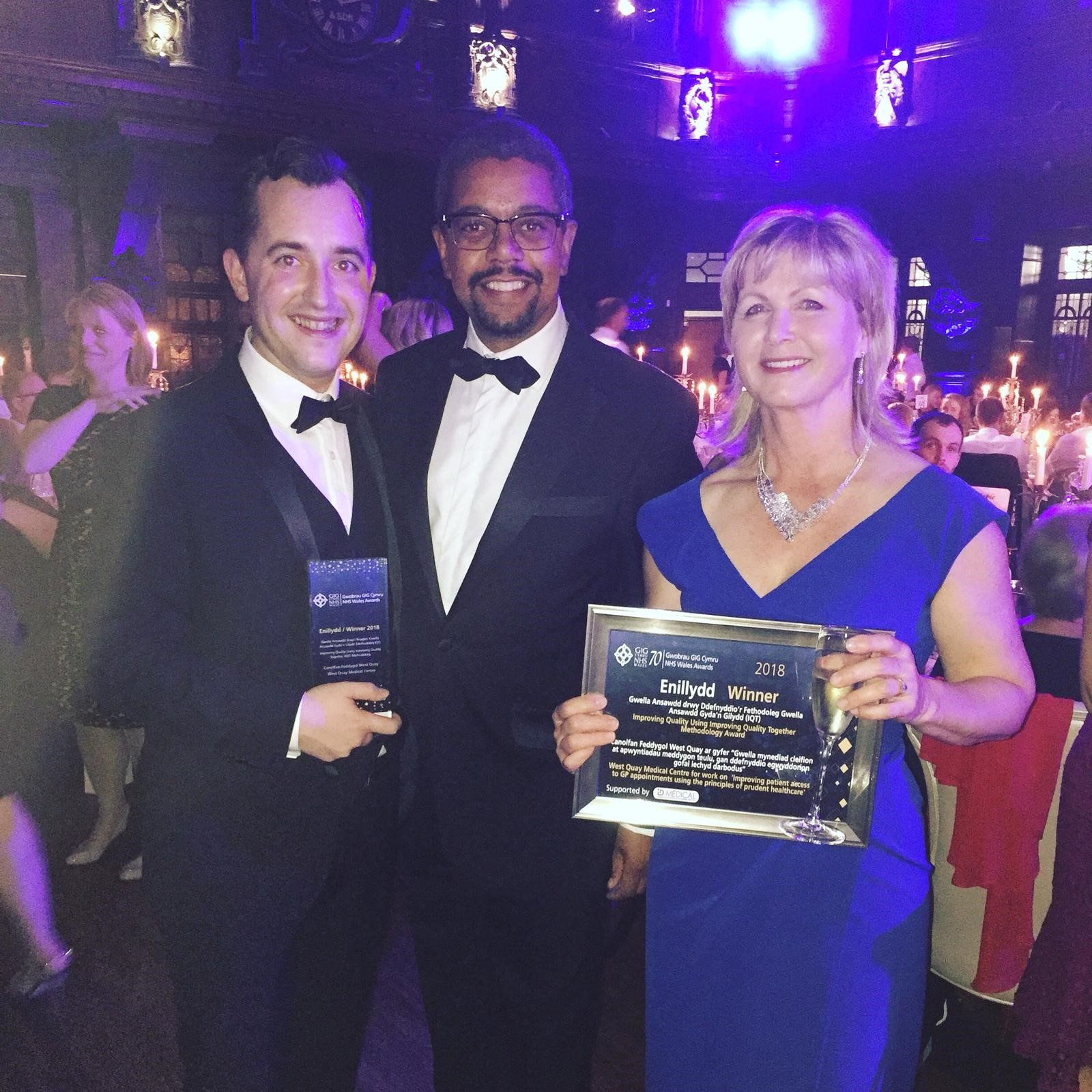West Quay Medical Centre wins NHS Wales Award 2018
21 September 2018
West Quay Medical Centre is celebrating after winning an NHS Wales Award at the eleventh anniversary of the awards.
A project on “Improving patient access to GP appointments using the principles of prudent healthcare” won the Improving quality using IQT methodology award, supported by the Wales Deanery.
Cabinet Secretary for Health and Social Services, Vaughan Gething, who attended the ceremony, said, “The NHS Wales Awards are a national showcase for excellence and celebrate best practice in improving patient care across Wales. It’s a great opportunity to learn from each other and recognise the inspiring innovation of our NHS staff.
“Every finalist should be proud to be shortlisted for an award. I am humbled to see such passion and dedication to improving services provided across Wales. This is even more important and of even greater value with the increasing challenges that we face across our health and social care system”.
The NHS Wales Awards are organised by 1000 Lives Improvement, the national improvement service for NHS Wales delivered by Public Health Wales. The Awards were launched in 2008 to celebrate the 60th anniversary of the NHS and recognise and promote good practice across Wales.
Entries were received from a range of organisations, revealing a high standard of innovative and diverse work that is transforming patient care across Wales.
To read more about all of the winners visit www.nhswalesawards.wales.nhs.uk
Summary of West Quay Medical Centre's Project
Colleagues at West Quay Medical Centre asked their patients what they felt about access to GP appointments, using a “Survey Monkey” questionnaire: 52% reported difficulty making any appointment, and 35% reported difficulty seeing the same GP (continuity of care). However, once patients had accessed a GP, 89% rated the service as either excellent or very good/good.
Following the feedback, the team at West Quay sought for an understanding of how much GP time was used per day on medication-related tasks, and examined models for a safer and more efficient repeat prescribing process.
Baseline data was collected and sequential Plan, Do, Study, Action (PDSA) cycles were planned as small tests of change to the way that the GPs work. A number of changes were implemented as a result of the PDSA cycles, which culminated in the employment of a full-time Pharmacist as part of the Primary Healthcare Team. Alongside the new post, a new repeat prescribing process was implemented to optimise use of the practice Pharmacist’s time and skills.
The new addition to the team - a Pharmacist focusing on medication reviews and prescription administration - has had a great impact on the practice, releasing 109 mins/day (or 11 extra GP appointments/day) and facilitating GP triage of all appointment requests, enabling more prudent use of the wider healthcare team. GP time released allows longer appointments for patients with complex co-morbidity.
Similarly, the impact on patients has also been substantial: improved access to GP appointments, new access to Pharmacist, better continuity of care, and improved process for medication reviews - patients have only those tests and monitoring appointments they need, and no more.

